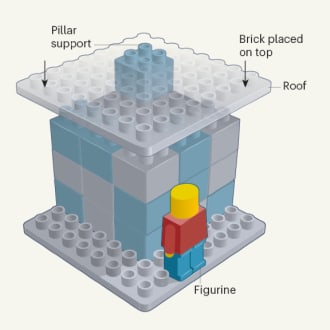
9 Best Articles on Problem Solving
The most useful articles on problem solving from around the web, curated by thought leaders and our community.
Refind focuses on timeless pieces and updates the list whenever new, must-read articles or videos are discovered.
Top 5 Problem Solving Articles
At a glance: these are the articles that have been most read, shared, and saved on problem solving by Refind users in 2024 so far.
- Systematic inventive thinking: the power of thinking inside the box
- Creative Problem Solving: from complex challenge to innovative solution
- Mental Models For Problem-Solving To Avoid Catastrophic Mess
- Adding is favoured over subtracting in problem solving
- Emotions Aren’t the Enemy of Good Decision-Making
How to ...?
How to master the seven-step problem-solving process
Structured problem solving strategies can be used to address almost any complex challenge in business or public policy.
Short Articles
Short on time? Check out these useful short articles on problem solving—all under 10 minutes.
Creative Problem Solving: from complex challenge to innovative solution
When facing a difficult dilemma, Creative Problem Solving offers a structured method to help you find an innovative and effective solution.
«With brainstorming, Osborn suggested that it’s better to bring every idea you have to the table, including the wildest ones, because with just a little modification, the outrageous ideas may later become the most plausible solutions. In his own words: “It is easier to tone down a wild idea than to think up a new one.”»
Mental Models For Problem-Solving To Avoid Catastrophic Mess
How to solve problems quickly and cheaply? Add more mental models to your thinking toolbox. Check the best mental models For problem-solving.
Emotions Aren’t the Enemy of Good Decision-Making
Too often, when we need to make a difficult decision, we rush through it to avoid sitting with uncomfortable emotions. But channelling those emotions — a process the author calls “emotional…
«But the exercise of emotional bookending helped him realize that there were other ways to get the business acumen that the company needs.»
Systematic inventive thinking: the power of thinking inside the box
When talking about creativity, many people will tell you: “Think outside the box!” The catchphrase is so common in management consulting and business environments, it has become a bit of a cliché.…
«Thinking inside the box often provokes resistance as it runs counter to some of the most ubiquitous intuitions about innovation. However, it’s a formidable creative thinking tool which is actually fun to use.»
Adding is favoured over subtracting in problem solving
People tend to solve problems by adding features.
«Moreover, people could assume that existing features are there for a reason, and so looking for additions would be more effective.»
Long Articles
These are some of the most-read long-form articles on problem solving.
Imagination isn’t the icing on the cake of human cognition
Imagination isn’t just a spillover from our problem-solving prowess. It might be the core of what human brains evolved to do
«Unlike vision or memory, after all, imagination doesn’t seem to be a cognitive attribute that’s widely distributed in the natural world.»
A three-step framework for solving problems 🤔
Nothing is more certain to cause a project to fail than a misunderstanding of the problem you are solving.
Are You Solving the Right Problems?
Reframing them can reveal unexpected solutions.
What is Refind?
Every day Refind picks the most relevant links from around the web for you. Picking only a handful of links means focusing on what’s relevant and useful.
How does Refind curate?
It’s a mix of human and algorithmic curation, following a number of steps:
- We monitor 10k+ sources and 1k+ thought leaders on hundreds of topics—publications, blogs, news sites, newsletters, Substack, Medium, Twitter, etc.
- In addition, our users save links from around the web using our Save buttons and our extensions.
- Our algorithm processes 100k+ new links every day and uses external signals to find the most relevant ones, focusing on timeless pieces.
- Our community of active users gets the most relevant links every day, tailored to their interests. They provide feedback via implicit and explicit signals: open, read, listen, share, mark as read, read later, «More/less like this», etc.
- Our algorithm uses these internal signals to refine the selection.
- In addition, we have expert curators who manually curate niche topics.
The result: lists of the best and most useful articles on hundreds of topics.
How does Refind detect «timeless» pieces?
We focus on pieces with long shelf-lives—not news. We determine «timelessness» via a number of metrics, for example, the consumption pattern of links over time.
How many sources does Refind monitor?
We monitor 10k+ content sources on hundreds of topics—publications, blogs, news sites, newsletters, Substack, Medium, Twitter, etc.
Can I submit a link?
Indirectly, by using Refind and saving links from outside (e.g., via our extensions).
How can I report a problem?
When you’re logged-in, you can flag any link via the «More» (...) menu. You can also report problems via email to hello@refind.com
Who uses Refind?
450k+ smart people start their day with Refind. To learn something new. To get inspired. To move forward. Our apps have a 4.9/5 rating.
Is Refind free?
Yes, it’s free!
How can I sign up?
Head over to our homepage and sign up by email or with your Twitter or Google account.
Keep Learning
Get the big picture on your favorite topics.








